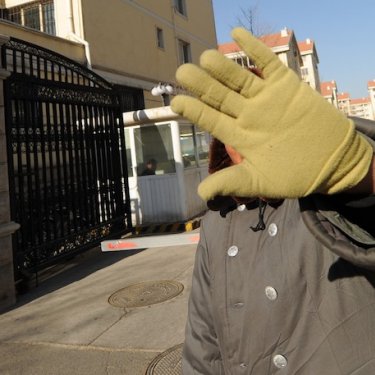China must stop harassing foreign reporters

Reporters Without Borders (RSF) calls on the Chinese authorities to stop obstructing the work of foreign journalists after the Foreign Correspondents’ Club of China (FCCC) released a report last week showing a sharp increase in harassment of its members.
What with being followed, arrested, roughed up, threatened with expulsion or discovering that pressure has been put on their sources, foreign reporters are finding it increasingly difficult to work in China. Of the 117 members who responded to the FCCC survey, 40% reported that conditions have worsened, as against 29% last year.
“Harassing foreign journalists and then posing as a victim when they publish annoying reports will not help the Chinese government to improve its image,” said Cédric Alviani, the head of RSF’s East Asia bureau. “Such behaviour is all the more shocking because the regime does its best to exploit the freedom available to journalists in democratic countries in order to develop its propaganda network there.”
Visa or accreditation denial
Using the threat of non-renewal of their press visas, the classic method of pressuring foreign reporters, is on the rise. Fifteen percent of the respondents said they had been threatened, three times as many as last year. Six percent said they had been directly threatened with expulsion, a percentage that has also tripled.
The threat of expulsion hangs over every foreign correspondent and is sometimes carried out. Ursula Gauthier, a French journalist, was expelled at the end of 2015 because of an article that caused displeasure. The New York Times and Al Jazeera saw reporters expelled in 2012, the Toronto-based Globe and Mail in 2009.
Denial of accreditation is also on the rise. Many leading international media outlets – including the BBC, Economist, Financial Times, Guardian, New York Times, Yomiuri Shimbun, Sankei Shimbun, Libération and Voice of America – were prevented from covering a Politburo Standing Committee meeting on the official grounds of “lack of room.” It seems to have been a punishment for criticizing President Xi Jinping in editorials.
Forbidden areas
Restrictions on freedom of movement have increased significantly. Three quarters of the respondents who went to the troubled Xinjiang region in China’s far west said the area in which they were allowed to move about had been reduced.
Like the North Korean border area, it seems that this region is subject to “special restrictions.” When Globe and Mail reporter Nathan VanderKlippe went to Xinjiang last August, he was detained, questioned, followed to his hotel and his laptop was confiscated for 12 hours.
But harassment is no longer limited to the special regions and officials all over China are now reluctant to let foreign journalists operate freely. “Police and other local authorities increasingly tried to claim that prior permission is required to report in their area,” Wall Street Journal reporter Josh Chin said.
Threats and violence
Two South Korean journalists were badly beaten by Chinese security officials while covering a visit by the South Korean president to Beijing. The incident was indicative of the lack of consideration that the regime shows towards the foreign media. It is no surprise that more than half of the FCCC’s respondents said they had been subjected to interference and harassment and 8% reported physical violence.
A BBC News crew was accosted in Hunan in February 2017 by a group of men in civilian dress who refused to identify themselves. They manhandled the journalists and smashed their video equipment. Later, under the supervision of uniformed policemen and officials, the journalists were forced to sign a statement confessing to “behaviour causing a bad impact” and trying to conduct an /i>“illegal interview.”
Shortly after Nobel peace laureate Liu Xiaobo’s death in July, the authorities prevented the foreign media from entering the hospital to which he had been confined. Voice of America reporter Yibing Feng and his assistant, Ai Lun, were jostled by plainclothes police and their equipment was damaged.
Pressure on sources
Foreign journalists are nowadays also discovering a more insidious form of pressure: harassment of their sources and those who provide logistic help. A quarter of the respondents said some of their contacts had been harassed, detained or summoned for interrogation.
“When filming on remote location, locals were warned against talking to us and even told not to help us with places to eat or sleep,” BBC News reporter Kathy Long said. She added: “Several companies which offered us filming facilities of political pilgrimage sites subsequently withdrew their offers after government/local authority pressure to do so.”
Even when there is no sign of officials, fewer and fewer Chinese agree to cooperate with the foreign media for fear of sanctions. AFP’s Beijing bureau chief, Patrick Baert, who first reported in China in 1997, said: “It is as hard as ever to contact the authorities and to find people who can talk, who are not afraid to talk.”
China is ranked very near the bottom of RSF's World Press Freedom Index (176th out of 180 countries).



